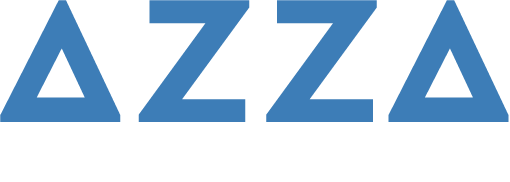Dev Ops Engineer
Business Systems Analyst
Resume Tips
Cloud Application Developer
Security Architect
A resume serves as a concise summary of your education, skills, accomplishments, and experience. While it may not guarantee you the job, it is a crucial first step in securing an interview. In today’s highly competitive job market, it is essential to give yourself every advantage by creating a well-crafted and impactful resume that reflects your strengths and achievements.
Here are some key tips to keep in mind when writing your resume:
- Keep it concise: Aim for a resume that is brief and to the point. Generally, two pages are sufficient, but rarely exceed four pages. Your resume should provide a summary of your qualifications, which you can elaborate on during the interview.
- Proofread meticulously: Eliminate any spelling or grammatical errors from your resume. Sloppy mistakes can quickly diminish your chances of getting an interview. Attention to detail is crucial, so ensure your resume is professional, accurate, and error-free. Consider having a friend proofread it as well.
- Utilize positive action verbs: Make your resume impactful by using strong action verbs that highlight your strengths and accomplishments. Words like “achieved” and “improved” will position you as a competent worker with a positive attitude.
Additional Resume Tips:
- Be truthful and accurate: Never lie or exaggerate on your resume. Honesty is essential, as employers will conduct reference checks to verify your claims.
- Maintain a professional tone: Write your resume in the first person (“I”) voice, demonstrating that you are a proactive individual rather than just a talker. Avoid clichés and generic phrases, as they are commonly used by everyone. Instead, focus on showcasing your unique qualities and experiences.
- Present yourself professionally: Adopt a serious, professional, and polite tone when presenting yourself to potential employers. Avoid sarcasm or attempts at humor in your resume.
- Choose the right format for submission: If submitting your resume electronically, send it as an MS Word or Text file. Most organizations have standard software compatibility with MS Office. Some employers prefer text files due to virus concerns. If providing a paper resume, use white or ivory paper, as it copies more cleanly if needed for distribution.
- Highlight your strengths: Concentrate on emphasizing your strengths rather than dwelling on your weaknesses. Employers want to know why you are qualified, so focus on showcasing your relevant qualifications and experiences.
- Omit personal information: Avoid including personal details such as age, height, race, or photos in your resume. Such information is irrelevant and can potentially lead to bias.
- Include a cover letter: Always attach a well-written cover letter to your resume. Clearly state the position you are applying for and explain how your qualifications align with the job requirements.
- Keep it simple and concise: Decision-makers often spend only a short time reviewing resumes, so keeping it short, precise, and easy to read is crucial.
The Perfect Resume
Header:
At the top of your resume, include a header with your up-to-date contact information, including your full name, address, contact phone number, and email address. Use a permanent address whenever possible. Ensure that the contact phone number you provide is one you can easily answer uninterrupted. Also, make sure to have a professional-sounding message on any answering device and avoid using music or gimmicks. When including a URL, consider its relevance before adding it to your resume.
Objective Statement:
Start the body of your resume with a concise statement about your primary career objective or goal. This statement should be one or two sentences and provide the reader with an understanding of what you aim to achieve in the short-term regarding your career.
Education:
List your training or education, years attained in reverse chronological order, focusing on the ones relevant to your career goals. Include any academic awards or achievements you have received.
Experience:
The experience section is a crucial part of your resume. List your work experience in reverse chronological order, providing the name of your past employers, your position, and the dates you worked for each employer.
If you have an extensive work history, it may not be necessary to include details for your entire career. Summarize experiences older than 15 years or those that are irrelevant to the position you’re applying for. The same applies to part-time and summer positions you held as a student.
Thoughtfully highlight experiences that are directly relevant to the position(s) you are applying for. Outline your main roles and responsibilities for each position, focusing on your achievements and accomplishments. Don’t forget to mention the platforms, environments, tools, or any other relevant information.
Additionally, provide a brief explanation for any gaps in your work history. Employers will expect you to account for any periods when you were out of the workforce.
Volunteer Experience:
If you have any volunteer experience that is pertinent to your career, list it separately from your work experience.
Special Skills:
Include any specific skills that were not covered in your education or training section.
Personal Interests:
Consider including a concise list of your personal interests and hobbies. This allows employers to gain a better understanding of who you are and what you are passionate about.
References:
Some resumes mention “references available upon request,” while others provide three professional references along with the resume. Either approach is acceptable. If you choose to include references, ensure they are individuals you have worked for (supervisor/manager) or studied under (not friends or family members). Seek permission from your references to include their names, email addresses, and phone numbers on your resume.
